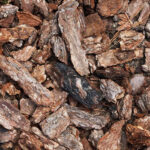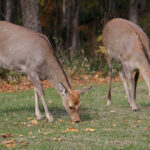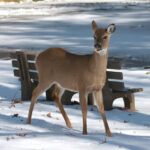Coyote attacks on livestock are increasing as we continue to reduce their natural habitat and food sources. Goats are not exempt from being targeted by hungry coyotes.
They do have some defense tools, like horns and hooves, that can come in handy when facing off with a predator. But is that enough to protect them from harm?
Can goats defend themselves against coyotes?
Table of Contents
- Can Goats Defend Themselves Against Coyotes?
- How Do Goats Defend Themselves Against Coyotes?
- How To Protect Goats From Coyote Attacks
- When Are Goats Most At Risk Of A Coyote Attack?
- What Would Happen If Goats Faced A Pack Of Coyotes?
- Main Predators Of Goats
- Final Thoughts
- Related Posts
Can Goats Defend Themselves Against Coyotes?
Not quite – goats are common prey of coyotes. Despite their strength and agility, goats are still vulnerable to coyote attacks. The goat industry in North America suffers from a few million dollars in losses every year due to coyote predation.
Like other livestock, they can be attacked both at night and during the day by hungry coyotes.
However, they do have some strategies to put up a fight.
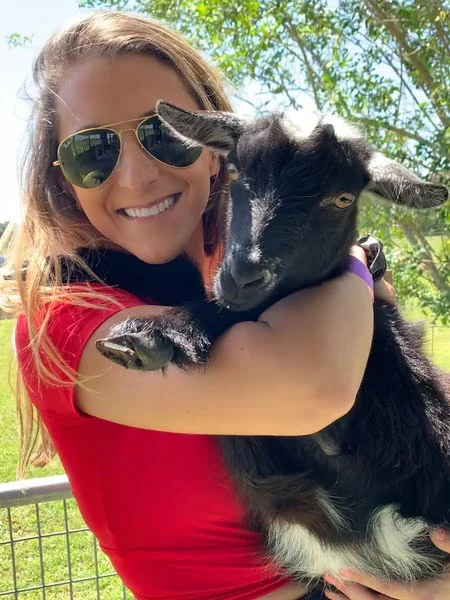
How Do Goats Defend Themselves Against Coyotes?
Goats know they are more protected in a group. When a predator is spotted, a goat herd will cluster together to increase their chances of survival. It’s harder for coyotes to single out and snag a goat when they are running together in a large group.
Coyotes generally hunt alone or in pairs, but rarely in a pack.
It is hard for them to take down large prey alone, so they typically target smaller animals like chickens, ducks, and rabbits. If easier prey isn’t around, however, they’ll go after goats.
Size Matters
Size helps. Large goats are less at risk of a coyote attack. Young and injured goats are more likely to be killed, as they are easier targets – there is not much a small or physically hindered goat can do to defend itself from a coyote.
Some goats are large enough that a coyote may decide to avoid them.
In this coyote attack on a farm recorded on video, the coyote went after chickens, but wouldn’t go near the goats that stood their ground.
But if a coyote does decide to attack, what can a goat do to defend itself?
Escape Plan
A goat’s natural reaction is to run away. Goats are used to being prey animals, and the best defense of prey is often to escape the predator.
Goats can sprint for short periods, but a coyote will easily outrun a goat.
Defense Mechanisms
Goats have horizontal pupils. This allows them to spot predators that may be sneaking up in their periphery.
This is a helpful defense, but if the coyote is intent on eating a goat and there’s nowhere to run, the extra warning may not help.
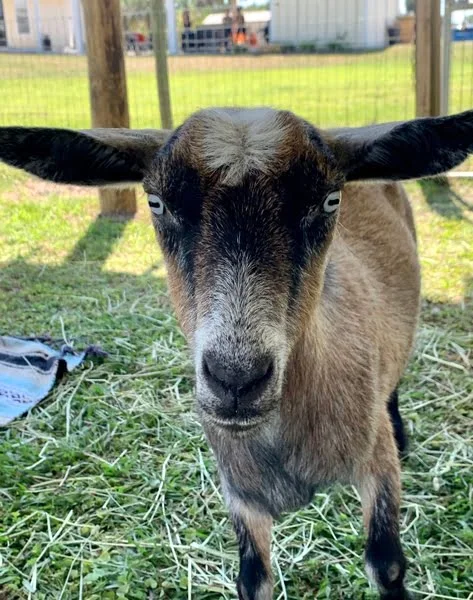
Goats can use their horns as a defense. Along with a few other functions, the horns of goats help them defend themselves against predators.
However, this is no match for a hungry coyote. Coyotes aim to bite the throat first, so if a goat does get attacked by a coyote it usually does not survive.
Goats may also stomp their hooves as a defensive reaction. This is only really effective with smaller predators like foxes, however.
This could intimidate coyotes and make them back away if they have easier prey options nearby. But coyotes are too large for goats to effectively harm them with their hooves.
How To Protect Goats From Coyote Attacks
- Get a donkey or llama to scare off coyotes. They will make noise, kick, and bite in response to threats, and they are large enough to not be viewed as prey by coyotes.
- Note: The guard animal must bond to the goats from a young age.
- Get a guard dog, such as a Great Pyrenees. They are effective but need a lot of training.
- Keep goats in herds so they are more protected.
- Keep goats in a safe pen or space indoors at night.
- Put up electric fences to prevent coyotes from jumping over or digging under them.
- Install night lights or infrared lights that come on when they detect motion. Bright lights can scare coyotes.
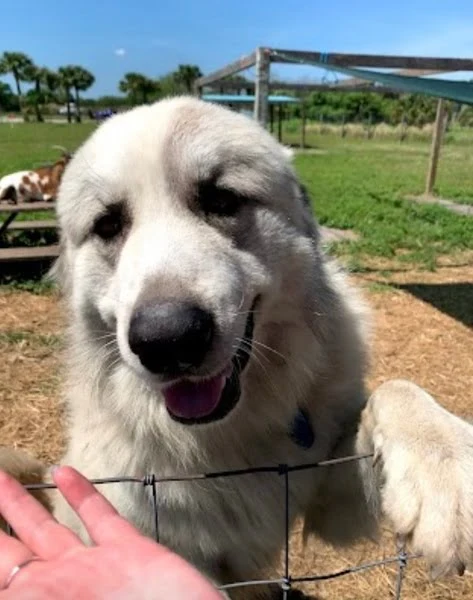
When Are Goats Most At Risk Of A Coyote Attack?
Coyote predation on livestock generally increases in the spring and summer when pups are being raised. More food, especially protein, is needed during these seasons.
Spring is especially a dangerous time for goats, when new kids have just been born, providing easy targets for the coyotes.
Attacks may also increase in the middle of winter when other food sources are scarce.
Coyotes strike more often when humans are not around. Coyotes are more active during the night and at dawn and dusk. However, attacks happen in broad daylight as well.
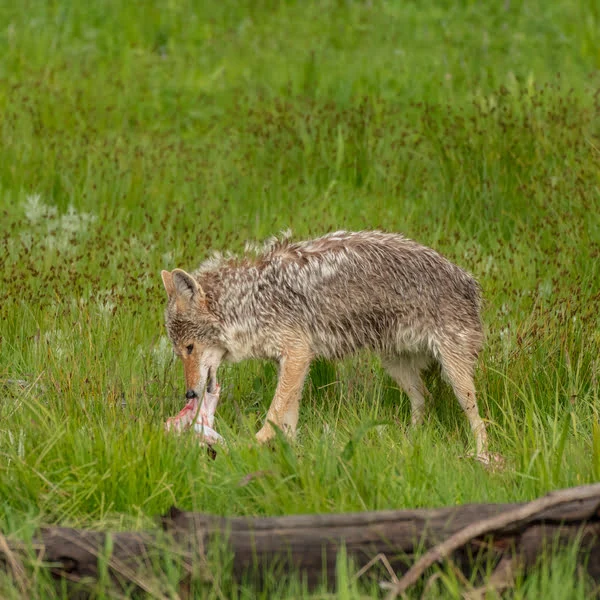
What Would Happen If Goats Faced A Pack Of Coyotes?
Coyotes generally hunt alone, but in some areas where small prey are less abundant, they may hunt cooperatively in small groups to take down larger animals.
Considering one coyote can kill a goat if it sets its mind to it, a pack is even more threatening. Herds would not provide as much protection if there are multiple coyotes coming from several directions.
Coyotes do not all act the same – some will attack goats, and some will not. When dealing with coyotes and livestock safety, one of the most important things to remember is that removing a coyote can have harmful consequences for your farm.
Coyotes are territorial. If there are coyotes living in your area, but you have not had any major problems with livestock death, do not kill the coyotes.
They are preventing other coyotes – who may be eager livestock killers – from moving in.
Main Predators Of Goats
Coyotes are not the only predators of goats you should be worried about. Wolves, bobcats, foxes, and eagles are also known to prey on goats.
While coyotes pose a major threat to goats, you should also be worried about domestic and wild dogs.
Dogs are sometimes mistaken for coyotes but usually injure more goats at once since they attack for fun while the coyote attacks solely for food.
Final Thoughts
There is not much a goat can do to fend off a coyote. Goat horns and hooves can fight some predators but are no match for a coyote’s teeth and claws.
However, coyotes will typically not go after goats if there is smaller prey around, like chickens.
A goat can intimidate a coyote just with its size, by standing its ground.
If the coyote is desperate, though, it will attack anyways, and it’s up to you to protect your goats.

